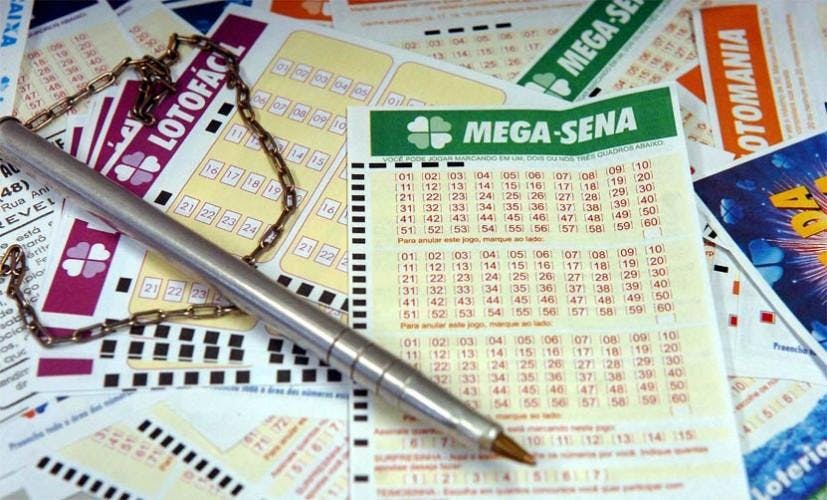When Entertainment Becomes Dependence
The psychological and financial impact of lottery addiction can turn what begins as entertainment into a serious problem. Learn how to identify signs of dependence and hear from those who have overcome it.
The Lottery House
tags:
responsible gaming
tip

Fun That Can Spiral Out of Control
Lotteries have always attracted millions worldwide, offering the promise of instant wealth with a single ticket. For many, playing the lottery is harmless fun, a small investment in a remote possibility. However, for some players, this entertainment quickly spirals out of control, leading to severe financial and psychological issues.
In this article, we explore what drives some players to develop a gambling addiction, the impacts of this dependency, and how mental health experts and former gamblers are addressing the issue.
The Allure of Lotteries

At its core, the lottery is a game of chance. Although the odds of winning are slim, the hope of winning a massive jackpot—no matter how remote—motivates millions of people to keep playing. For some, it's just a form of entertainment and a way to escape daily stress. For others, it becomes an obsession.
One reason lotteries can be addictive is the concept of "intermittent reinforcement," a psychological theory that explains how sporadic rewards can heighten the desire to continue playing. Even though the odds of winning are small, receiving occasional small prizes encourages players to bet more, believing the "big win" is just around the corner.
How Gambling Affects the Brain

According to psychology experts, the areas of the brain activated during gambling are the same ones responsible for pleasure and reward. Psychologist Rachel Volberg explains that playing triggers the release of dopamine—the neurotransmitter linked to pleasure. This means that, much like drug consumption, the repetition of gambling can lead to a chemical dependency in the brain, where individuals constantly chase the euphoria created by placing bets.
When Gambling Consumes the Family Budget

The financial impact of lottery addiction is profound. What begins with small bets can quickly escalate into larger wagers, as players attempt to recover lost money. This leads to a cycle of debt, with individuals using funds meant for essential expenses—such as food, rent, or household bills—to continue gambling.
In many cases, addicted gamblers may resort to taking out loans or even turning to loan sharks to finance their habit. The inability to stop, even when financial consequences become severe, is a clear sign that gambling has transformed from entertainment into addiction.
Research shows that the financial burden of lottery addiction affects not only the gambler but also their entire family. Spouses and children often bear the weight of accumulated debts, leading to family conflicts, divorces, and even bankruptcy.
The Psychological Effects of Gambling Addiction

In addition to financial damage, lottery addiction can have serious mental health consequences. The pressure to win back lost money, combined with feelings of guilt and shame, can lead to chronic anxiety and depression. Compulsive gamblers frequently report a sense of hopelessness, as they feel trapped in a cycle of betting and losing from which they cannot escape.
Social isolation is another common effect. Many compulsive gamblers avoid telling family and friends about their addiction, distancing themselves from their support network and facing the problem alone. Shame often compounds this isolation.
According to experts, the stigma surrounding gambling addiction remains a significant barrier to treatment. Compulsive gambling is often viewed as a moral failing rather than a treatable medical condition, preventing many from seeking the help they need.
Warning Signs

Gambling addiction often develops gradually, making it difficult to identify in its early stages. However, there are warning signs that suggest entertainment may have turned into an addiction. Common signs include:
Increasing bets over time
Lying to cover up gambling behavior
Using money meant for essential expenses to gamble
Feeling guilty or ashamed after gambling
Inability to stop gambling, even when the player wants to
Family conflicts and social isolation
Recognizing these signs early is crucial to preventing the problem from worsening. Experts recommend that players and their families stay vigilant for these red flags.
Regaining Control

Although lottery addiction may feel like an endless cycle, recovery is possible with the right support. Stories of former gamblers who have regained control of their lives are inspiring and demonstrate that recovery is achievable.
One gambler who developed a severe addiction after years of playing the lottery shares how the addiction began to affect his mental health and finances, to the point where he lost his job and nearly his marriage. After seeking help from a support group and starting therapy with a psychologist specializing in addiction, he was able to break the cycle of self-destruction and now uses his experience to help others.
Treatment and Prevention

Treatment for lottery addiction follows similar approaches to other forms of addiction. Cognitive Behavioral Therapy (CBT) is one of the most recommended treatments, as it helps individuals identify thought patterns that drive compulsive behavior and develop strategies to manage it.
Support groups, like Gamblers Anonymous, also provide emotional and practical support for those seeking to break free from addiction. In these groups, players share their stories and learn from the experiences of others.
Prevention plays a key role as well. This includes raising awareness of the risks of gambling, setting financial limits for bets, and seeking alternative entertainment to avoid continuous exposure to gambling.
Conclusion: Finding Balance Between Fun and Control
Lottery addiction can turn an innocent pastime into a dangerous trap. While it's easy to ignore the signs in the early stages, the psychological and financial impacts can be devastating in the long term. However, with the right awareness and support, it's possible to overcome addiction and regain control of life.
Whether for occasional players or those facing bigger challenges, balancing fun and control is essential. Gambling should always be viewed as entertainment, never as a solution to financial or emotional problems.